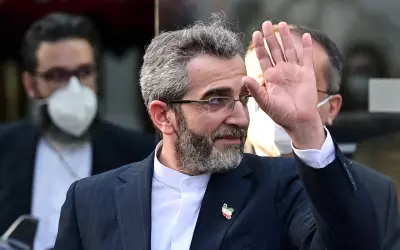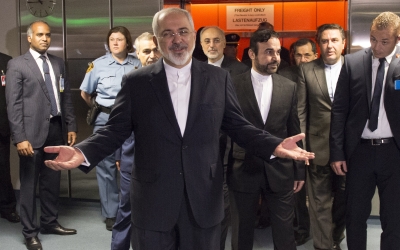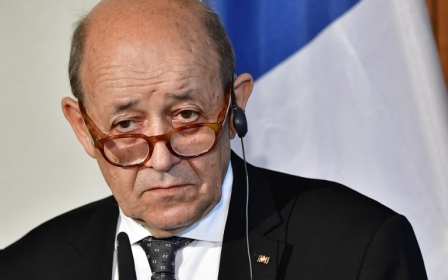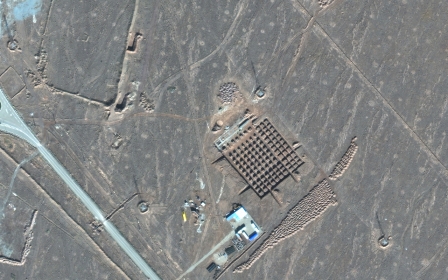Iran: World powers 'to test Tehran's good faith' over commitment to nuclear agreement
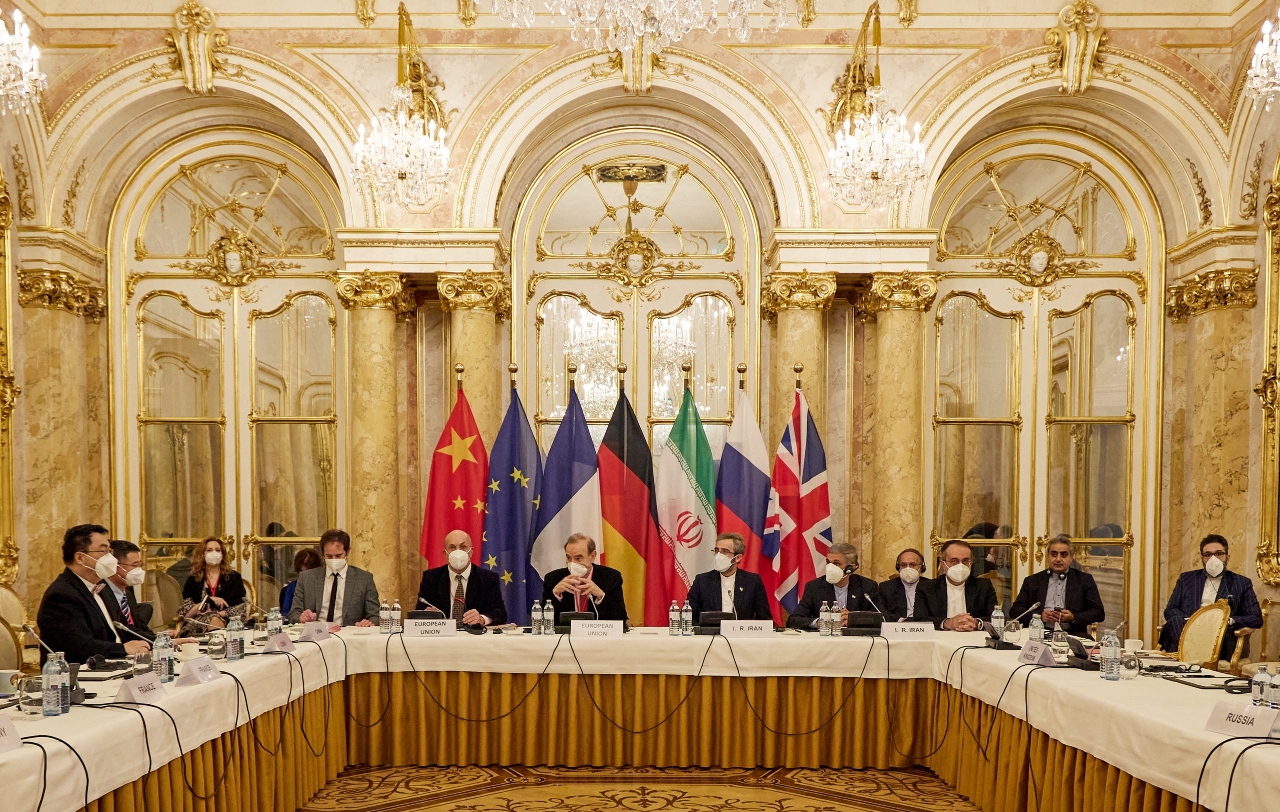
World powers will assess over the next few days whether Iran is serious about nuclear negotiations, after it indicated a readiness to continue talks on the basis of texts agreed at the last round in June, a European source said on Friday.
Talks on reviving the 2015 Iran nuclear deal resumed on Thursday with the United States and Israel turning up the heat on the Islamic Republic by talking about the possible economic or military consequences if diplomacy fails.
New MEE newsletter: Jerusalem Dispatch
Sign up to get the latest insights and analysis on Israel-Palestine, alongside Turkey Unpacked and other MEE newsletters
Iran's top negotiator said Tehran was sticking to the stance it laid out last week, when the talks broke off with European and US officials accusing Iran of making new demands and of reneging on compromises worked out earlier this year.
"Iran said it accepted to work from the June texts. This will now be put to the test over the next couple of days," the source told Reuters, speaking on condition of anonymity.
Working groups will convene on Friday to discuss the US sanctions that might be lifted and the nuclear curbs Tehran needs to observe.
The indirect US-Iranian talks in Vienna, in which diplomats from the remaining parties of the now tattered Joint Comprehensive Plan of Action (JCPOA) - France, Britain, Germany, Russia and China - shuttle between the two negotiating teams because Tehran refuses direct contact with Washington, aim to get both sides to resume full compliance with the accord.
Western officials have claimed that Iran has abandoned any compromises it made in the previous six rounds of talks, while banking the compromises of others and demanding more last week.
US special envoy for Iran Robert Malley told Al Jazeera TV on Thursday that the US was ready to hold direct negotiations with the Iranians on Tehran's nuclear programme, calling it the best solution to such a complicated issue.
Malley said that Iran had not presented constructive proposals during previous negotiations and even retracted compromises it had made before.
In an exclusive interview with Middle East Eye last week, Iran's top negotiator, Ali Bagheri Kani, said the country was under no pressure to strike a deal over its nuclear enrichment programme, adding that the ball was squarely "in America's court" to resuscitate the agreement.
'Another couple of days'
"It will probably [be] another couple of days until we have a sense of where the Iranians are in the context of the restart of this round and... the flexibility that they may or may not be willing to show," US State Department spokesman Ned Price told reporters on Thursday.
Asked if Iran might be playing for time in the talks and seeking to exploit US weakness, Price said: "I can assure you that if the Iranian regime suspects the United States of weakness, they will be sorely surprised."
Price sought to deflect criticism that Iran has been stringing major powers along in the negotiations while making advances to its nuclear programme.
"We have been very clear that Iran will not be able to play for time, that Iran’s nuclear escalations and its provocations won't give Iran any additional leverage in these negotiations," he said, referring the ongoing talks in Vienna.
"The only thing these provocations and these escalations will do is to bring us closer to the point of a potential crisis. And we are not looking for a crisis," Price added, saying Washington wanted a diplomatic solution and that he hoped Iran was not looking for a crisis.
'Prepared to turn to other options'
In 2018, former US President Donald Trump pulled his country out of a deal in which Iran agreed with major powers that it would curb its nuclear programme in return for the lifting of international economic sanctions.
Trump then reimposed US sanctions, severely impacting Iran's economy and prompting it to start violating the nuclear restrictions about a year later.
On Thursday, the US State Department said it was moving to tighten the enforcement of sanctions against Iran with the dispatch of a senior delegation to the United Arab Emirates (UAE) next week.
Although the UAE and Iran are on different sides of the region's strategic rivalries, their long-standing business ties have remained one of Iran's main links to the outside world.
The US and Israel increased pressure on Iran further on Thursday, with Israel's visiting defence chief raising the issue of joint military readiness to be able to halt Iran's nuclear aspirations, if necessary.
Reuters reported that the US-Israeli agenda during the Washington talks was expected to include discussions about destroying Iran's nuclear facilities should diplomacy fail.
US Defence Secretary Lloyd Austin said at the start of the meeting with his Israeli counterpart, Benny Gantz, that Iran had failed to offer constructive diplomatic engagement in the Vienna talks.
Austin said US President Joe Biden was "prepared to turn to other options" if the current American policy on Iran fails.
"We are completely aligned in our commitment to preventing Iran from obtaining a nuclear weapon. This is a national security interest of the United States and Israel and the world," Austin said.
Middle East Eye delivers independent and unrivalled coverage and analysis of the Middle East, North Africa and beyond. To learn more about republishing this content and the associated fees, please fill out this form. More about MEE can be found here.


